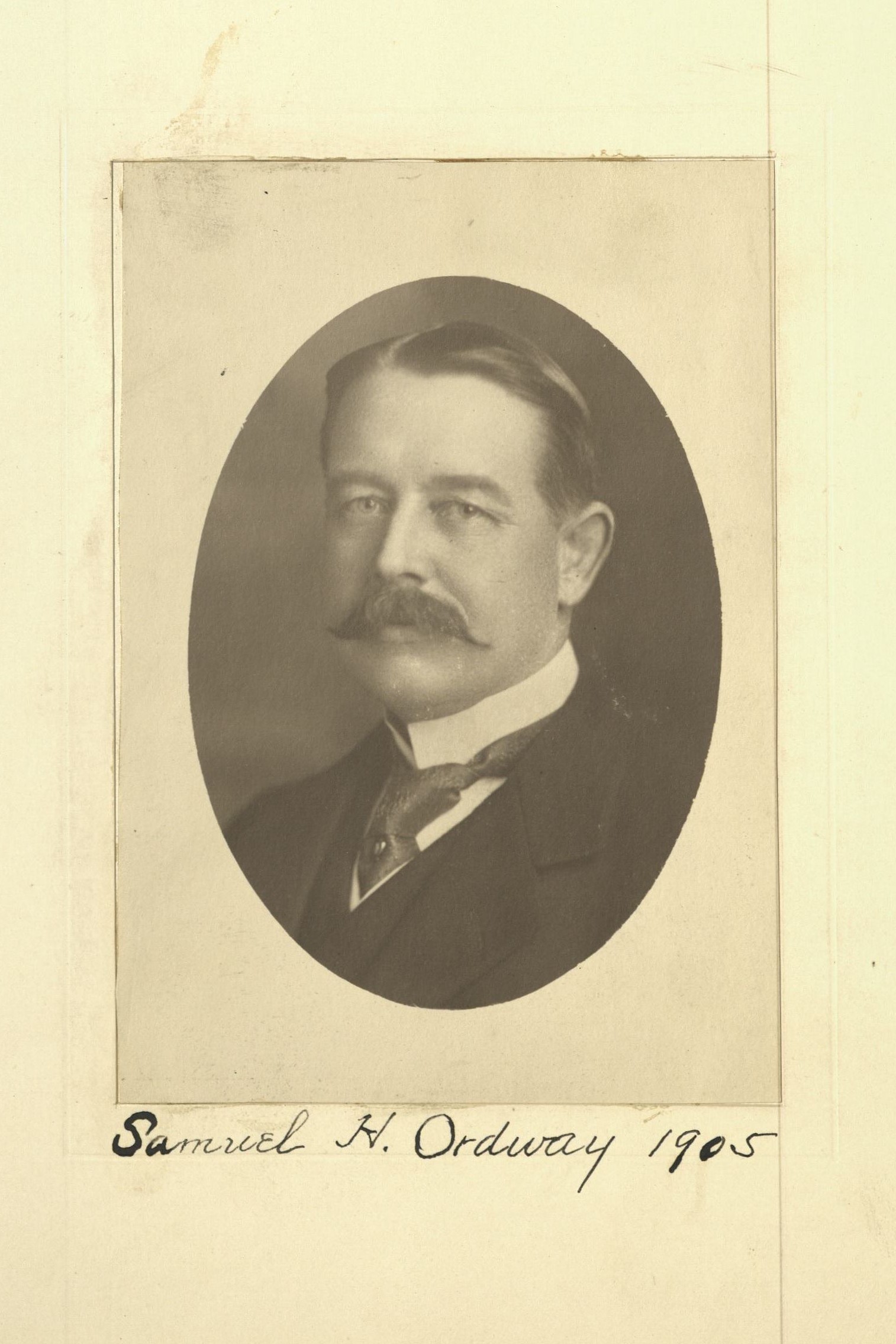Lawyer
Centurion, 1905–1934
Born 8 June 1860 in New York (Manhattan), New York
Died 19 April 1934 in New York (Manhattan), New York
Buried Woodlawn Cemetery , Bronx, New York
, Bronx, New York
Proposed by Charles O. Brewster and Arthur H. Scribner
Elected 4 November 1905 at age forty-five
Archivist’s Note: Father of Samuel H. Ordway
Century Memorial
Samuel Hanson Ordway was one of the eminent New York lawyers, happily numerous in the city’s history, who divided time and energy impartially between private practice and public service. He will be remembered chiefly, perhaps, for his long and resolute leadership in the battle for civil service reform. His participation in Governor Hughes,’s commission to pass on the question of public control of the Stock Exchange is not yet forgotten. The report of this “Stock Exchange commission of 1908” was of much more far-reaching significance than its members knew. In 1934, as in 1908, public clamor had arisen because of a Wall Street panic, mostly invited by the public’s own speculative extravagances. The Stock Exchange was on both occasions made the scapegoat for everything that had happened, and on both occasions an angry public, convinced that “short selling” had been the cause of all the trouble, demanded its abolition and the conducting of Stock Exchange affairs by a political State bureau. The commission of 1908—made up of citizens like Ordway, whose wisdom, integrity and impartiality nobody disputed—recognized in its report certain defects of existing New York Stock Exchange procedure which ought to be and which were corrected. But it also pointed out, with forceful reasoning, the possible mischievous consequences of state control. It courageously declared, first, that if speculative buying for the rise with borrowed money were to continue, then speculative selling with borrowed stock was a normal restraining influence; second, that selling for future delivery was a valid and necessary procedure in every branch of trade. It is not too much to say that this sober verdict of 1908, in which Ordway heartily concurred, stood in the way of the ruthless wrecking of legitimate Stock Exchange machinery for which excited Congressmen were shouting in the spring of 1934.
Judge Ordway did not permit his many professional and civic responsibilities to impair enjoyment of the amenities of life. He was a good club companion, an ardent hunter and fisherman in the Adirondack wilderness—to whose preservation he devoted time and energy as heartily as they were granted to the promotion of civic welfare.
Alexander Dana Noyes
1935 Century Association Yearbook

